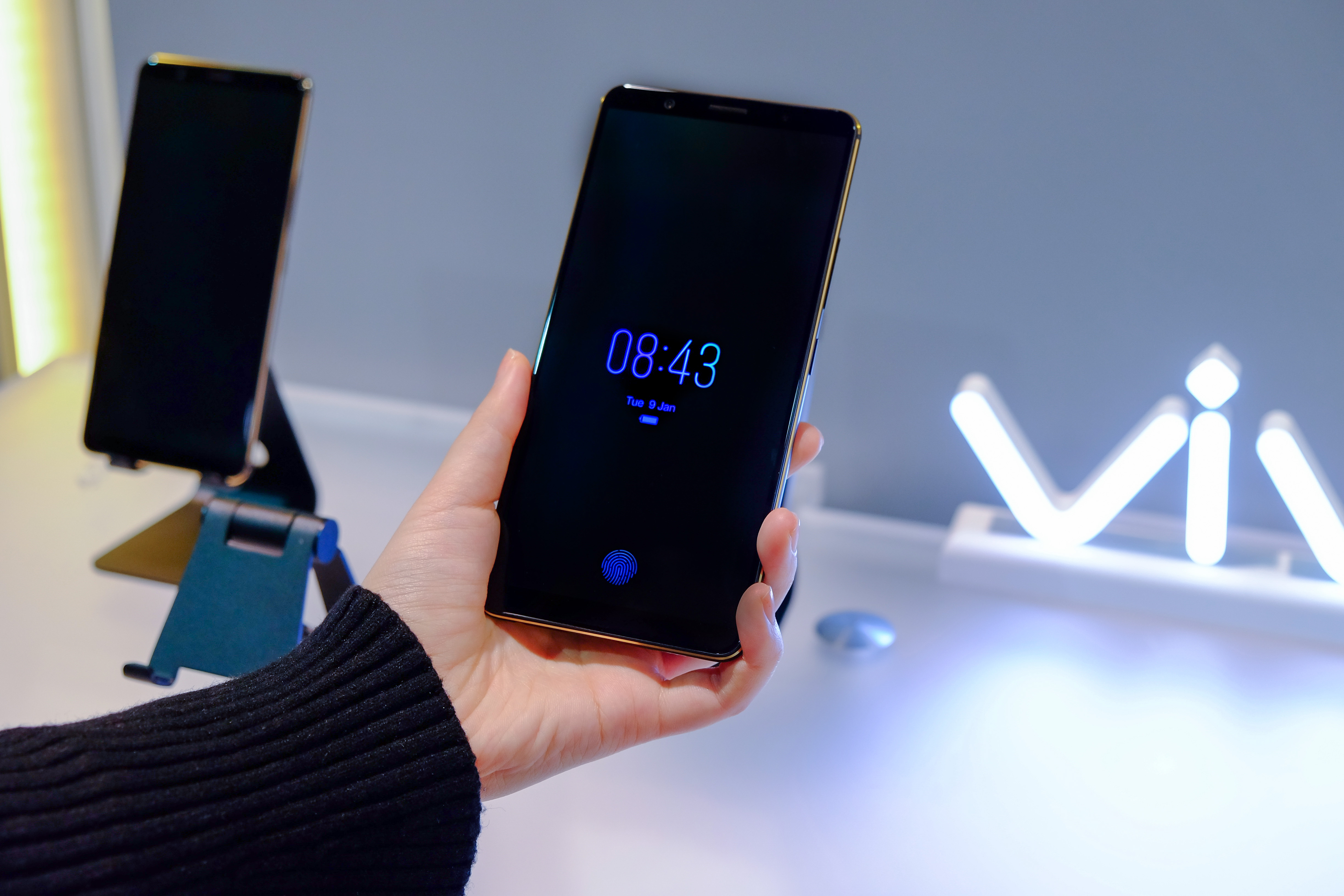Las Vegas, US ( PRESS RELEASE )
CES 2018, Vivo, a young global smartphone brand, showcased world’s first ready-to-produce in-display fingerprint scanning smartphone that draws attention from a global audience. Leading with distinct innovative breakthroughs, the futuristic Vivo in-display fingerprint scanning smartphone offers its consumers an unprecedented mobile experience, defining a new era of mobile interaction.
Vivo In-Display Fingerprint Scanning Technology in Detail
This latest fingerprint scanning technology delivers a whole new mobile experience by enabling users to unlock their smartphone through one-touch fingerprint scanning directly on the smartphone display, while solving the industry’s challenge of providing a better and more convenient fingerprint authentication experience in future smartphones.
Fingerprint recognition has long been one of the most common and well-known biometrics used to secure smartphones. As the industry moves into a new era of full-screen displays, it is natural that the fingerprint scanning technology needs to evolve to accommodate new user habits and demands for bigger screens without sacrificing user experience.
According to statistics from global consultancy Canalys, smartphone vendors shipped 22 million full-screen smartphones worldwide in the second quarter in 2017, up from 700,000 in the first quarter of this year. UBI Research predicted that bezel-less displays will grow in market share from 20% in 2017 to over 50% by 2020.
“With our efforts in extensive consumer research and long-term R&D investment, Vivo is well positioned to pioneer the development of fingerprint scanning technology. We first presented a prototype of our fingerprint scanning solution at MWC Shanghai 2017 based on an ultrasonic sensor, and have remained committed to realizing our vision for future smartphones,” said Alex Feng, Senior Vice President of Vivo.
“Today’s showcase of a ready-to-produce in-display fingerprint scanning smartphone featuring an optical fingerprint sensor is a big leap forward in bringing consumers this long-awaited, futuristic mobile experience. We are very excited to make it available to consumers soon”, he added.
Innovation that Delivers a New Level of User Experience
Vivo’s full-production smartphone is equipped with the industry-leading, world’s first in-display fingerprint scanning technology supported by global partner Synaptics.
It supports various usage scenarios beyond unlocking the smartphone, and is only activated when needed. A graphical UI will show up on Vivo’s smartphone screen in any scenario that fingerprint recognition is required, such as when the screen is off, during software unlocking, or even mobile payment authentication.
Users can press the fingerprint graphic on the screen to perform unlocking, payment and other operations. When fingerprint recognition is not required, the UI will be invisible and will not disrupt the overall visual experience.
Vivo In-Display Fingerprint Scanning Technology outperforms other authentication solutions available for full-screen smartphones in many aspects. Compared to fingerprint sensors on the back of smartphones, Vivo In-Display Fingerprint Scanning Technology offers a more convenient operation without sacrificing the sleek and unified design of the smartphone. It also enables quick and secured authentication.
Full-screen displays are set to deliver a more immersive user experience for consumers as various interactions will be integrated and consolidated on the display. Vivo In-Display Fingerprint Scanning Technology replaces the physical fingerprint button on the screen, laying the foundation for a truly immersive experience.
The showcasing of the world’s first in-display fingerprint scanning smartphone (ready for mass-production) marks a significant leap forward in the industry’s development, taking users’ smartphone experience to a new level. The availability of Vivo’s first in-display fingerprint scanning smartphone will be announced in early 2018.

